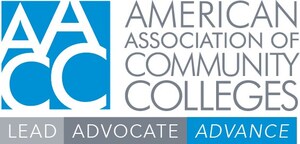Community Colleges Address Financial Barriers to Success For Low-income Students
$4.84 Million Initiative to Be Piloted at Six Sites
WASHINGTON, Feb. 8, 2012 /PRNewswire-USNewswire/ -- Do low-income college students who receive public benefits stay in school longer and complete their studies faster? A new initiative that will launch next summer at select community colleges will test this notion and work to provide models that other community colleges can implement and sustain.
The three-year $4.84 million initiative, Benefits Access for College Completion (BACC), is led by the Center for Law and Social Policy (CLASP) and the American Association of Community Colleges (AACC) with funding from the Ford Foundation, Kresge Foundation, Lumina Foundation, and the Open Society Foundations. The Annie E. Casey Foundation is also contributing to the initiative.
"We are committed to student completion and appreciate the major investment these foundations are making," AACC President Walter G. Bumphus said. "Their collaborative vision will help community colleges identify the best ways for students to access the benefits and services they need to finish what they start."
LaGuardia Community College President Gail Mellow said the initiative is a "huge opportunity" to help "financially troubled students get the benefits they are eligible to receive" and to help "shape the policy environment."
Of the close to 8 million credit students annually attending community colleges, 46% currently receive some form of financial aid (state, federal, or institutional). The additional benefits the students might access through BACC include a range of federal programs, such as those that provide health insurance, food, and child care. Such support services are especially critical for community college students, many of whom juggle work, studies, and family responsibilities.
Colleges selected for the BACC planning phase are: Cuyahoga Community College (OH), Gateway Community and Technical College and Owensboro Community and Technical College (KY), LaGuardia Community College (NY), Northampton Community College (PA), and Skyline College (CA). Macomb Community College and Lake Michigan Community College also will participate and share perspectives from similar work in Michigan.
During the initiative, participating colleges will become social innovators that integrate access to federal and state supports and other existing public resources into college operations, in some ways redefining the concept of financial aid and student supports. It is the hope that by working directly with local and state benefits administrators to eliminate policy barriers and align services, community colleges will help students finish their programs of study faster and move to economic self-sufficiency.
At the end of the initiative, the BACC team hopes to use lessons learned to expand what works across the nation's more than 1,200 community colleges.
The Center for Law and Social Policy develops and advocates for policies at the federal, state and local levels that improve the lives of low income people. We focus on policies that strengthen families and create pathways to education and work. Through careful research and analysis and effective advocacy, we develop and promote new ideas, mobilize others, and directly assist governments and advocates to put in place successful strategies that deliver results that matter to people across America.
The American Association of Community Colleges is the leading national association representing the nation's close to 1,200 community, junior and technical colleges and their more than 13 million students. Community colleges are the largest and fastest growing sector of higher education, currently enrolling almost half of all U.S. undergraduates.
The Ford Foundation is an independent, nonprofit grant-making organization. For 75 years it has worked with courageous people on the frontlines of social change worldwide, guided by its mission to strengthen democratic values, reduce poverty and injustice, promote international cooperation, and advance human achievement. With headquarters in New York, the foundation has offices in Latin America, Africa, the Middle East, and Asia. For more information, visit www.fordfoundation.org.
The Kresge Foundation is a $3.1 billion private, national foundation that seeks to influence the quality of life for future generations by creating access and opportunity in underserved communities, improving the health of low-income people, supporting artistic expression, assisting in the revitalization of Detroit, and advancing methods for addressing global climate change. The foundation's education program focuses on improving access to and success in postsecondary education for low-income and underrepresented students. In 2011, the Board of Trustees approved 346 awards totaling $170 million; $140 million was paid out to grantees over the course of the year. For more information, visit kresge.org.
Lumina Foundation, an Indianapolis-based private foundation, is committed to enrolling and graduating more students from college—especially 21st century students: low-income students, students of color, first-generation students and adult learners. Lumina's goal is to increase the percentage of Americans who hold high-quality degrees and credentials to 60 percent by 2025. Lumina pursues this goal in three ways: by identifying and supporting effective practice, through public policy advocacy, and by using our communications and convening power to build public will for change. For more information, log on to www.luminafoundation.org.
Active in more than 70 countries, the Open Society Foundations work to build vibrant and tolerant democracies whose governments are accountable to their citizens. Working with local communities, the Open Society Foundations support justice and human rights, freedom of expression, and access to public health and education. For more information, visit www.soros.org.
The Annie E. Casey Foundation is a private charitable organization, whose primary mission is to foster public policies, human-service reforms, and community supports that more effectively meet the needs of today's vulnerable children and families. For more information, visit www.aecf.org.
SOURCE American Association of Community Colleges
WANT YOUR COMPANY'S NEWS FEATURED ON PRNEWSWIRE.COM?
Newsrooms &
Influencers
Digital Media
Outlets
Journalists
Opted In




Share this article